BIO:
Casey James grew up with a guitar in his hands, and he sang before he could talk. No surprise, then, that his 2012 self-titled debut album from Sony Music Nashville should blend those talents into a blues-soaked country sound all his own. “I’m a musician,” James shrugs, when asked to classify his creativity. “Not a guitar player, not a singer – I’m a musician.” And as sophomore single “Crying On A Suitcase” climbs the charts, the story behind his music makes more sense than ever: James has been prepping for this gig his entire life.
Believe it or not, the young man with the super-smooth style was raised in a place called Cool. That’s the name of the tiny North Texas town where James spent his childhood, enjoying the freedom of a simple rural upbringing and surrounded by a tight-knit family with deep musical roots. “The very first memory that I’ve got of music is listening to a Ricky Skaggs album at my Nana and Papaw’s house,” James recalls. “‘Walking In Jerusalem’ has this guitar intro, and then the drums and bass come in... I remember moving a chair over in front of the speakers, just sitting there and listening, and as soon as all the instruments came in, I would start the song over.” He laughs at the thought of himself as a toddler, climbing that chair to move the needle on the record over and over again. “My Nana actually came and made me stop because she was tired of hearing it,” he says. It was 1986, and four-year-old Casey had found his calling.
Both Mom and Dad were active in music at church, and although the two split up when James was young, they would each have a tremendous influence on his musical education. “My dad plays guitar and sings extremely well, and Mom was always singing,” he says. When he was 13, she bought him his first guitar, and the boy and his instrument quickly became inseparable. “If you’d asked me back then if I spent all my time practicing, I would have told you no,” James chuckles. “But the funny thing is that, years later, different people were like, ‘You spent every day, all day long, with the guitar in your hands. You didn’t go anywhere without it.’ I guess when you love to do something you don’t really think of it as practice. I was just having fun, and spending time doing something that I love to do.” Within a year, he’d mastered a classical Spanish guitar piece called “Malaguena,” a song he learned from his dad. James played it at eighth grade graduation – his first public performance.
At the same time, like any typical teen, James was expanding his musical horizons. “I went through big phases, musically,” he says. He started with a love of traditional country music like Merle Haggard and George Jones, then moved to more modern artists like George Strait; the first song he ever learned to play and sing at the same time was “The Dance,” by Garth Brooks. But it didn’t take long for his curious mind to stretch out and discover classic rock, and soon his repertoire included Lynyrd Skynyrd, as well as Bob Seger tracks like “Old Time Rock N’ Roll” and “Night Moves.” (“Isn’t that great?” James says of the latter. “I don’t know what I’m saying, but I’m singing it.”) Since it was the ‘90s, he wasn’t immune to Seattle grunge, and he followed that with a blues phase that started in Texas with Stevie Ray Vaughn, and eventually took him all the way to the Mississippi Delta.
Unlike a typical teen, however, James wasn’t just soundtracking the struggles of adolescent life through his headphones – he was building a lasting relationship with the art of playing guitar. “I’ve sang my whole life, but I feel a lot closer to the guitar, because I had to really work at it as a craft,” James says. “Once I learned to play, I fell in love with the ability to make music, to put my fingers on the strings and make a beautiful song.” Something about his passion was contagious for his mother, who took a renewed interest in her music as well. “I guess it rekindled my mom’s desire to perform,” he says. “She’s a nurse, and she made a band with some doctor friends. They would do benefits and things like that, and she let me play with them.” Sitting in with his mother’s band was James’s first real exposure to the rush of entertaining crowds, and the experience would change his life.
By the time he was 17, James and his brother B.C. had formed the Casey James Band, and they were making real income by playing music. According to James, this was sort of accidental. “It started with somebody saying, ‘Oh, don’t you play guitar and sing? We’d love for you to come over and play at so and so’s birthday,’” he says. “Those things start to happen consistently, and you have a band all of a sudden. You’re getting together to jam, and it becomes a party. People are showing up, people you don’t know, and they say, ‘Hey, we’re having a party, would you play?’ And then somebody at that party happens to own a restaurant, and somebody has a club, and one thing turns into another, and all of a sudden you’re getting paid.” For James, this journey cemented a philosophy he says he still lives by. “I realized, Wow, I can do what I love to do and make enough money to eat and support myself... and then I never thought about doing anything else. It never even crossed my mind. What else is there in life but being happy?”
There’s another philosophy James lives by, earned through an accident of a very different kind. He doesn’t like to dwell on it, but it is an undeniable part of his story: At age 21, a motorcycle wreck nearly cost him his life. He survived, albeit with an arm injury that required months of therapy before he could play guitar again – and with a heart full of gratitude for the second chance he’d been given. “It changed my outlook on life in every way,” James says now of that terrifying day. “I had maybe half a second to think before I truly thought the end had arrived, and I just remember a feeling of regret that I had not treated people better. I didn’t think about things the way I do now. There’s a bigger picture than just Casey James. You can have success and still be a nice person. I realize that and keep it in mind on a minute to minute basis, and I wouldn’t be that person if it wasn’t for the wreck.”
Bodies heal. Hearts mend and change. James kept on playing the guitar that he loved, touring bars and clubs and any place that would have him. “I would never trade the time that I spent playing local gigs for anything,” he says of those years, despite occasionally inattentive crowds and the fact that, every once in a while, he had to raid a friend’s refrigerator to eat. “You learn your craft, you learn people, you learn how to work.” And James had a plan: He was going to save his money, make a record (an EP from 2002 featured “Freezing,” the first song he ever wrote), then sell those records on the road, and see where it went. “Maybe I could get, like, a manager one day,” he mock-exclaims. “Wow! You know? Maybe that person could help me with booking! It became a game plan in my mind. Little did I know, things were going to go in a different direction.”
Did they ever. In the fall of 2009, James auditioned for the ninth season of American Idol, but only because his mother asked him to. “I left one day thinking I’d audition for this TV show and be back in a few days, and next thing you know I’m gone for a few years,” he says with disbelief. “Had they not allowed people to play instruments, I would never have even tried out.” Turns out, the Idol audience had been waiting for someone like James: his blues and rock guitar skills were unlike anything that show had ever seen, and the calm confidence he radiated after so many years on the road attracted a tremendous following of fans. (His searing blue eyes and effortlessly sexy vocals didn’t hurt, either.) James finished third that season, gaining the respect of not only the judges, but critics nationwide. “The show is a very, very good example of the real-life music industry,” James says. “People have to like you. Thank God it allowed me to have the opportunities that I’ve got now.”
In 2010, on the heels of his Idol success, James signed with Sony Music Nashville. But rather than rush an album to stores in order to capitalize on his TV fame, the musician decided to take a breath. “After a lifetime of work, this was my very first opportunity to truly get myself out there,” James says. “I’ve always heard the term ‘strike while the iron is hot,’ but for me, it would have been wrong. I wasn’t ready. I didn’t want to just throw things together, I wanted to make sure that they were right.” He immersed himself in Music Row, teaming with some of Nashville’s most legendary songwriters, from Randy Owen and Tom Douglas to Brett James and Scooter Carusoe. “I’ve always written songs on my own, so the co-writing experience was really enjoyable for me,” James says. “It’s humbling to sit down with somebody that has made a career doing what they love, and been successful at it.”
The result of that immersion is Casey James, released in March of 2012, where it landed at No. 2 on the Billboard Country Albums chart. James co-wrote nine of the eleven tracks, and earned an album co-producer credit through what he calls a “relationship of trust” with producer Chris Lindsey. It’s a level of involvement that’s extremely uncommon among recording industry newbies – why not just sit back and let the professionals guide him? “Who knows your music better than you do?” James asks, by way of an answer. “From the chord progressions to the melody lines and mixing, the feel of the songs, even scheduling and pay sheets, I was 100 percent involved. At the end of the day, Chris felt strongly about me being listed as co-producer. He said, ‘People need to know that you put that time and effort into it, and you’re not some kid just popping some music out.’”
Indeed, the album is a complete artistic statement from James, whose vision rings through on every carefully-sequenced track. “I wanted it to be a romantic album, and musically, I wanted it to have elements of a little bit of everything,” he explains – hence the funky blues of “She’s Money,” the down-home country of “Workin’ On It,” and the Ray LaMontagne vibe woven throughout “Miss Your Fire,” the album’s heartfelt closer. “I never thought in genres growing up,” James says. “And country music is the only place that I can do ‘all of the above.’ There’s no boxes anymore, so I kind of feel like there’s space for me to do a new-age, R&B, bluesy, southern-rock thing. Country music is where I belong.” His first radio single was the sultry blue-eyed soul of “Let’s Don’t Call It A Night,” a choice James calls “a great introduction to me as an artist.” Now, he couldn’t be more thrilled to have the powerful “Crying On A Suitcase” as his follow-up. “I love the melody line, but I think the lyrics are what make people really relate,” he says. “It comes from an honest place when I sing it, and the passion and the intensity are there.”
And as you’d imagine from a man who’s been a working musician nearly half his life, James refuses to let success alter the game plan he set in motion way back when. “It’s easy to think that things will be handed to you,” he says. “But I feel like if you do that, opportunities will come around less and less, and then eventually they won’t come around at all. There’s no doubt that I’m working harder right now than I’ve ever worked in my entire life.” Tours with big-ticket headliners like Sugarland have helped him hone his already-dynamic performance skills, and as his career continues to grow, he’s keeping his priorities in exactly the right place. “Someone once asked me, ‘What’s your advice on how to get famous?’” James laughs at the memory. “If you want to be famous, you’re asking the wrong person. Being famous means nothing to me. It doesn’t do me any good. What does mean something is doing what I love to do. I’m always gonna play music, whether that’s for ten people in a smoky bar, millions of viewers on American Idol, or 50,000 people in a stadium someday, if I’m ever that lucky.
“I’m going to be around doing this for the rest of my life,” he concludes, with that trademark Cool confidence surrounding his words. “I’m not choosing to do it because somebody threw some opportunities my way. I’ve been working my whole life to get here, and I’m definitely not going to slow down or quit now.”
|
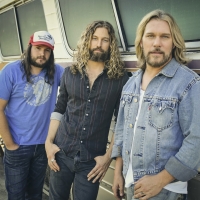 Texas Hill Announces Debut EP Coming September 25
Texas Hill Announces Debut EP Coming September 25
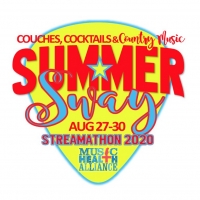 Country Sway Announces Summer Sway Streamathon 2020
Country Sway Announces Summer Sway Streamathon 2020
 Ameripolitan Awards 2019 Ballot Opens for Voting
Ameripolitan Awards 2019 Ballot Opens for Voting
 The Ameripolitan Awards Honors Larry Collins as the Keeper of the Keys
The Ameripolitan Awards Honors Larry Collins as the Keeper of the Keys
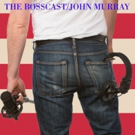 The Bruce Springsteen Podcast 'The Bosscast' Debuts On The Brain Machine Network
The Bruce Springsteen Podcast 'The Bosscast' Debuts On The Brain Machine Network
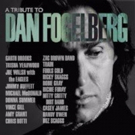 Star-Studded Album Honoring Dan Fogelberg Will Benefit the Prostate Cancer Foundation
Star-Studded Album Honoring Dan Fogelberg Will Benefit the Prostate Cancer Foundation
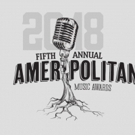 AMERIPOLITAN AWARDS Announce 2018 Awards Nominees
AMERIPOLITAN AWARDS Announce 2018 Awards Nominees
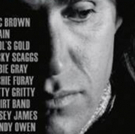 Long-Awaited Dan Fogelberg Tribute Album Out 11/17
Long-Awaited Dan Fogelberg Tribute Album Out 11/17


